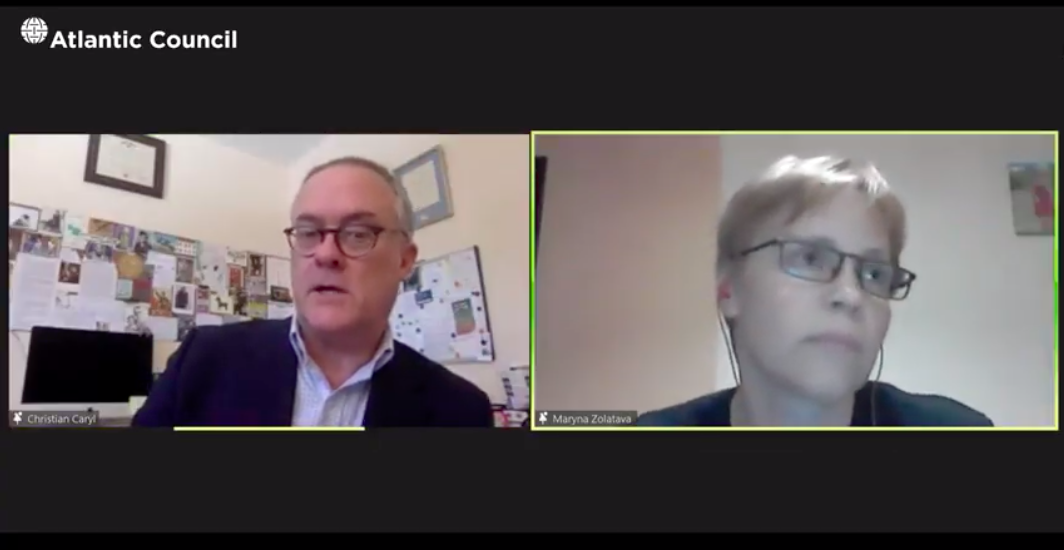Social Media an Extremely Important Outlet for Belarusian Independent Journalists
February 8, 2021 – Social media remains an important means for journalists in Belarus to fight state repressions, said Alexander Lukashuk, director of Radio Free Europe/Radio Liberty, and other on a panel of journalists gathered by the Atlantic Council on Thursday. Many journalists in the Eastern Eu

February 8, 2021 – Social media remains an important means for journalists in Belarus to fight state repressions, said Alexander Lukashuk, director of Radio Free Europe/Radio Liberty, and other on a panel of journalists gathered by the Atlantic Council on Thursday.
Many journalists in the Eastern European nation nestled between Poland, Ukraine and Russia have faced attacks, detentions, and fines. The situation became worse after August 2020 elections, when more than 470 Belarusian journalists were arrested.
International press members were also obliged to leave the country and, and coverage by the more formal media was banned.
With authorities attempting to take down any website or blog that discussed the election, social media become extremely important. Lukashuk said that the undercover nature of social media allowed it to flourish when other media were throttled.
Further, internet usage is restricted by the government: On protest days and before the election, the internet was shut down in the whole country. Virtual private networks did not help in getting around internet repression when all access was cut. Communication by phone became essential.
Even when the internet was restored, 30 percent of the population lack access to the internet.
Maryna Zolatava editor-in-chief at Tut, an independent news media and internet service portal in Belarus, said that its website was targeted by the government on a daily basis. They constantly need to have a plan B, C, D, and E.
With 400,000 subscribers on their channel on Telegram, a cross-platform instant messaging software, people feel the duty to help to promote the information and support its media channels. This popularity makes it harder for government authorities to take it down.
Hence, she said, social media usage has become a driving force of the protests.
Belarusians also need to confront disinformation propaganda with which Russia bombards the country.
During the pandemic, Moscow outlets trusted by the Belarusian people were promoting the idea that the Western world was deliberately propagating the COVID-19 virus.
While many Belarusians are skeptical of these propaganda narratives, polls have shown that people who are 50 years or older receive and are more likely to believe in misinformation and conspiracy theories, panelists said.









Member discussion